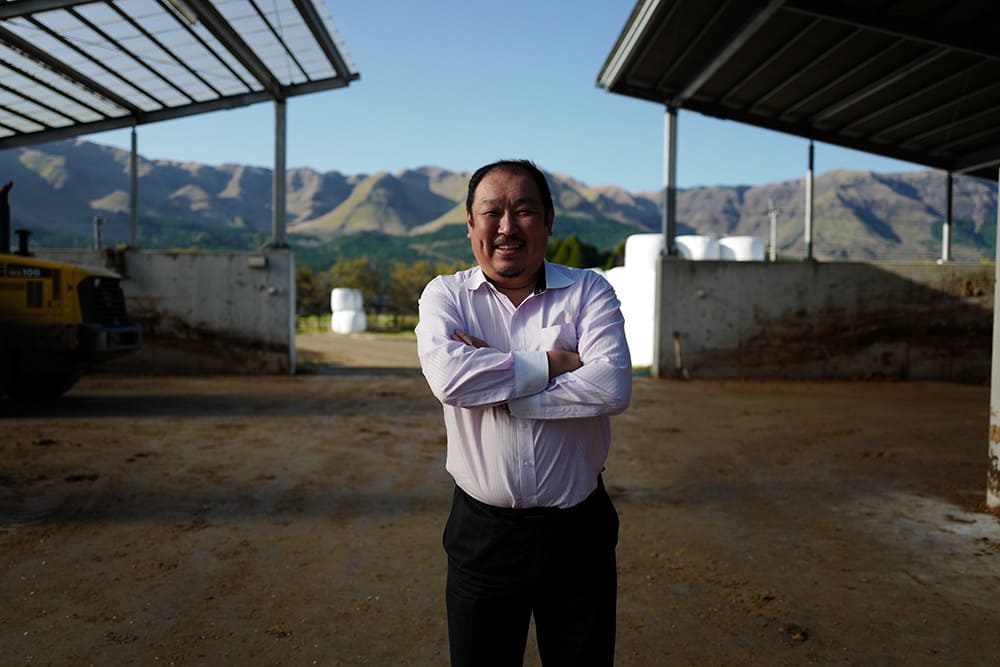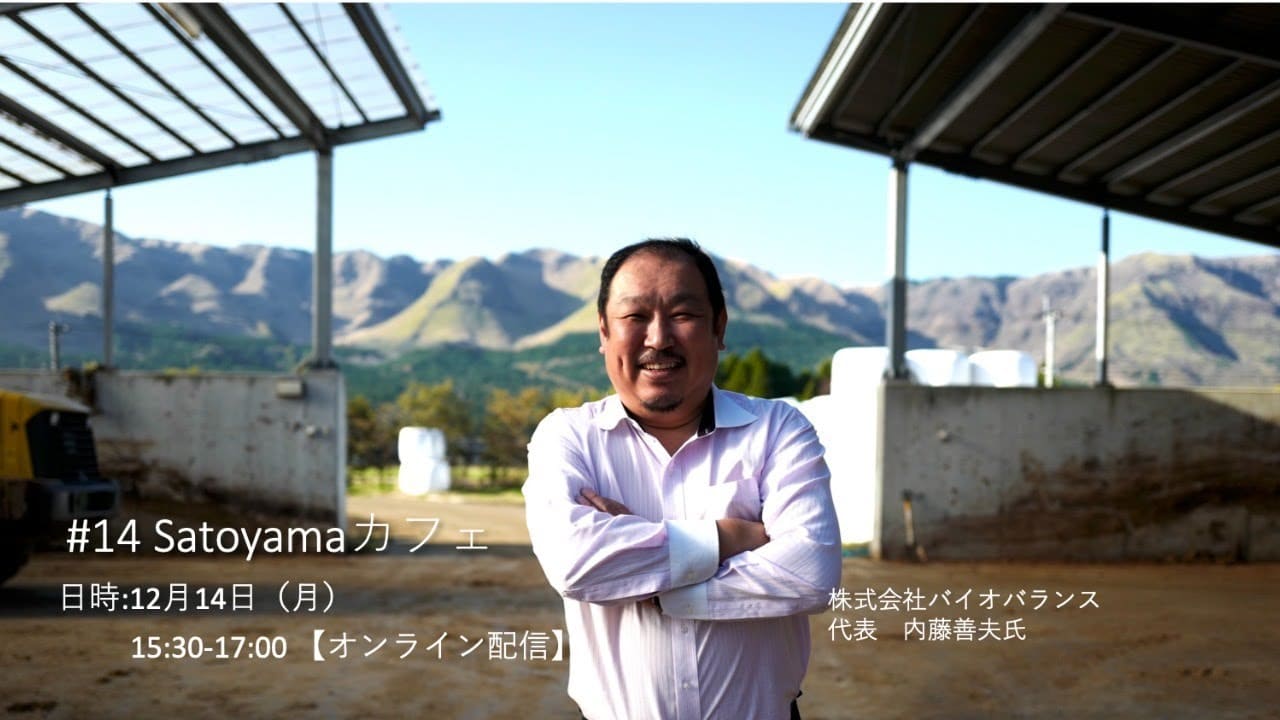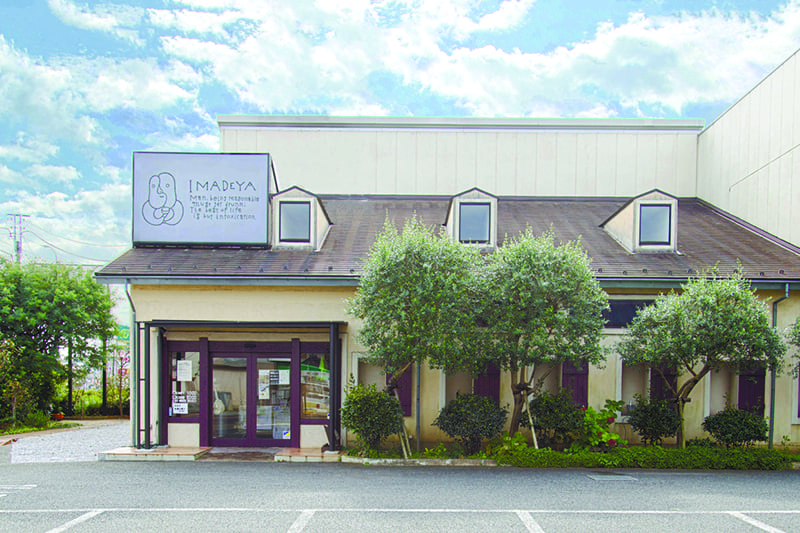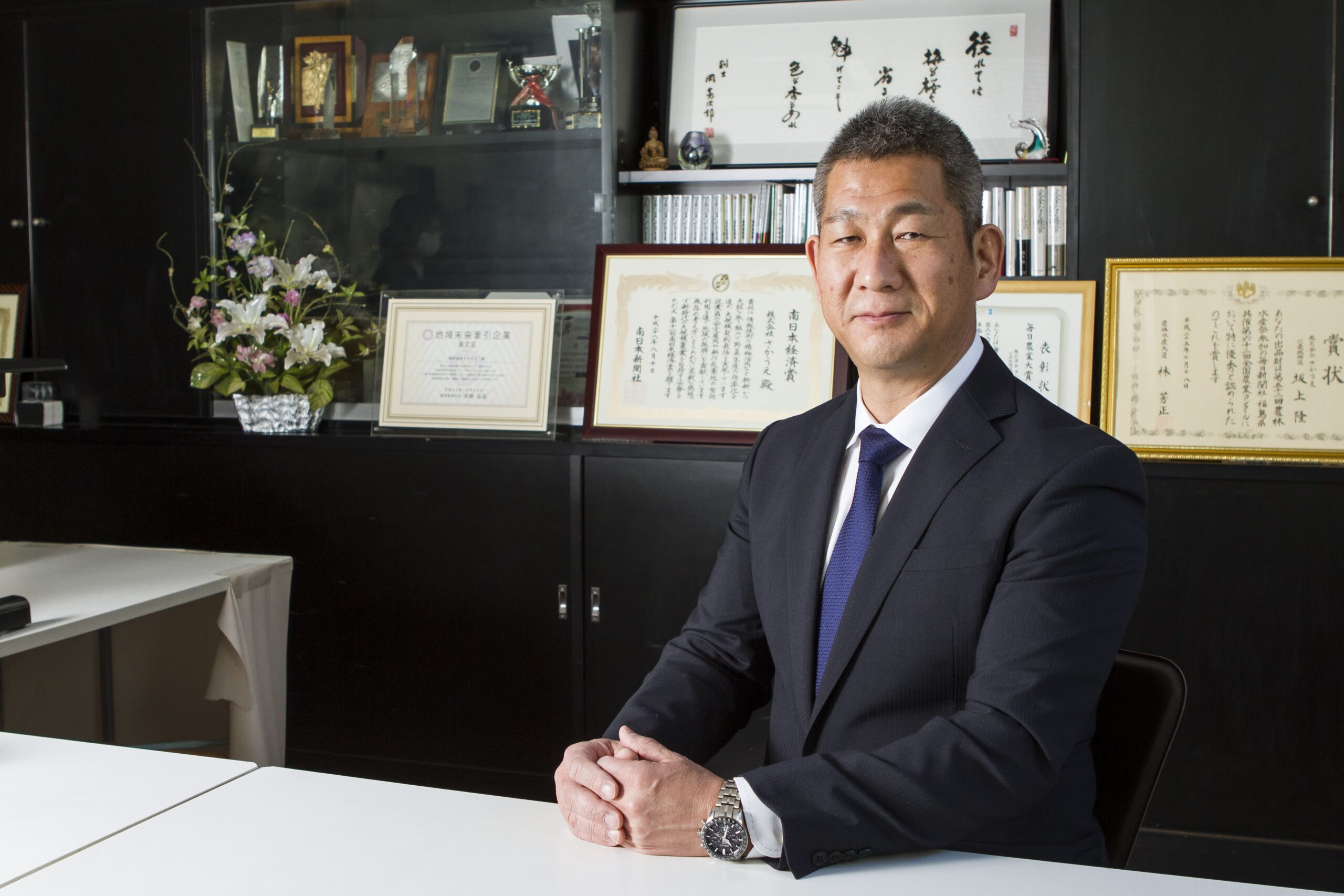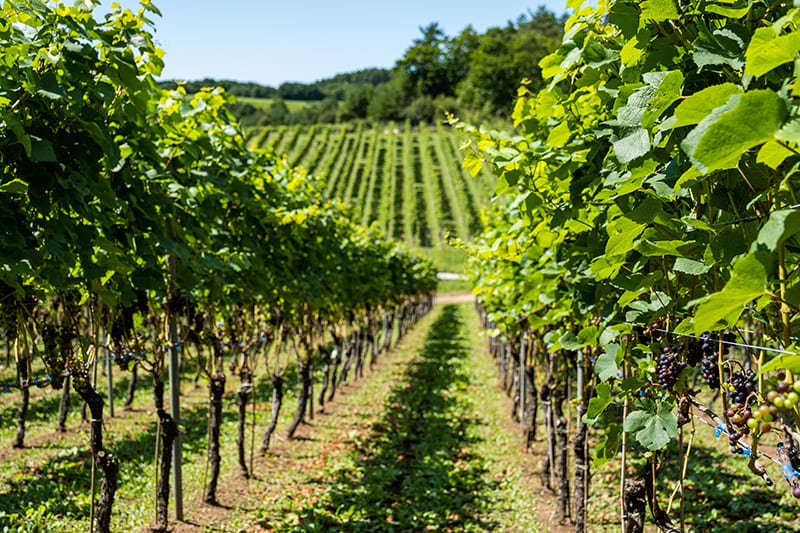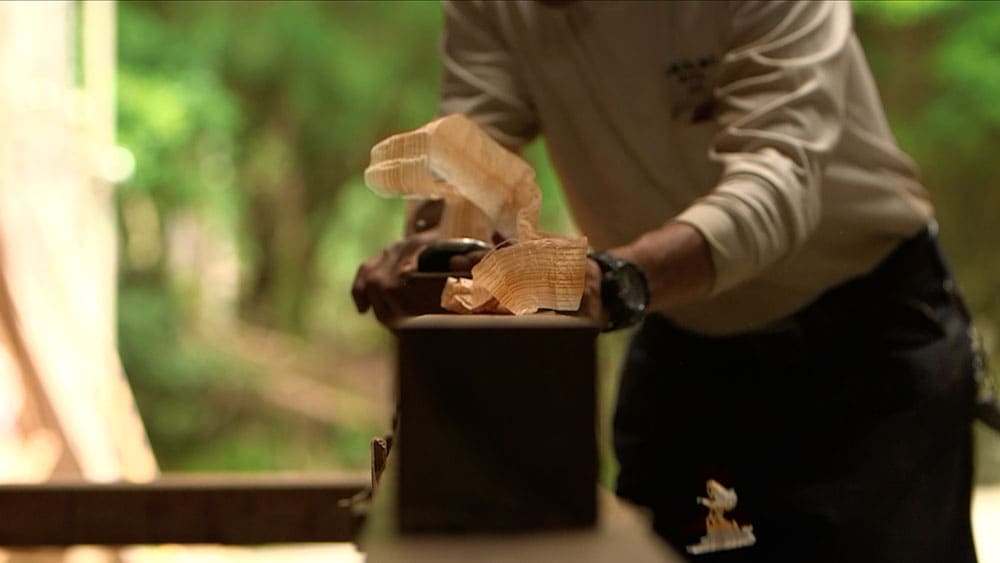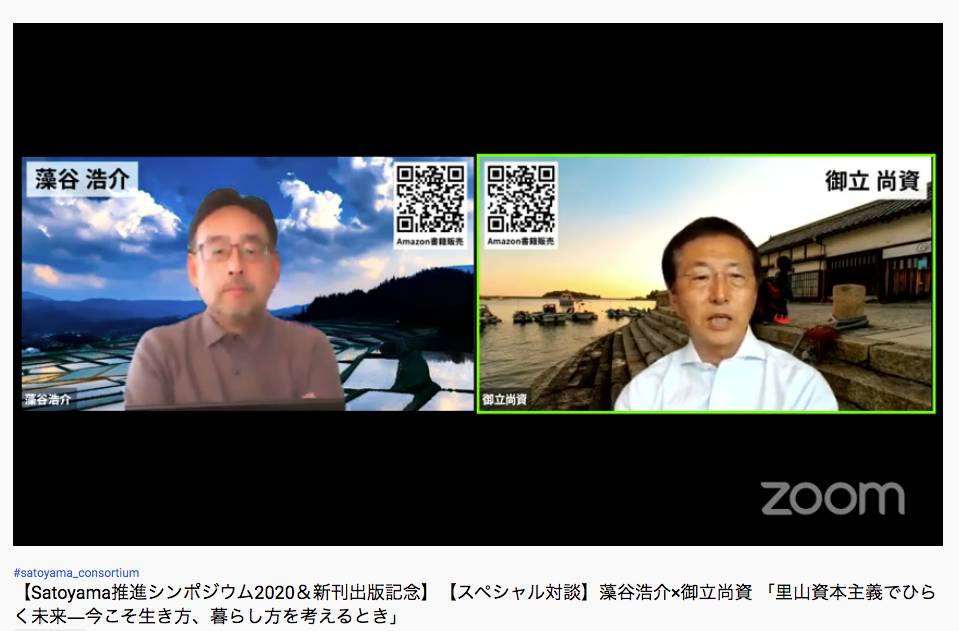April 16, 2021
Biobalance holistic probiotics turn manure to resource
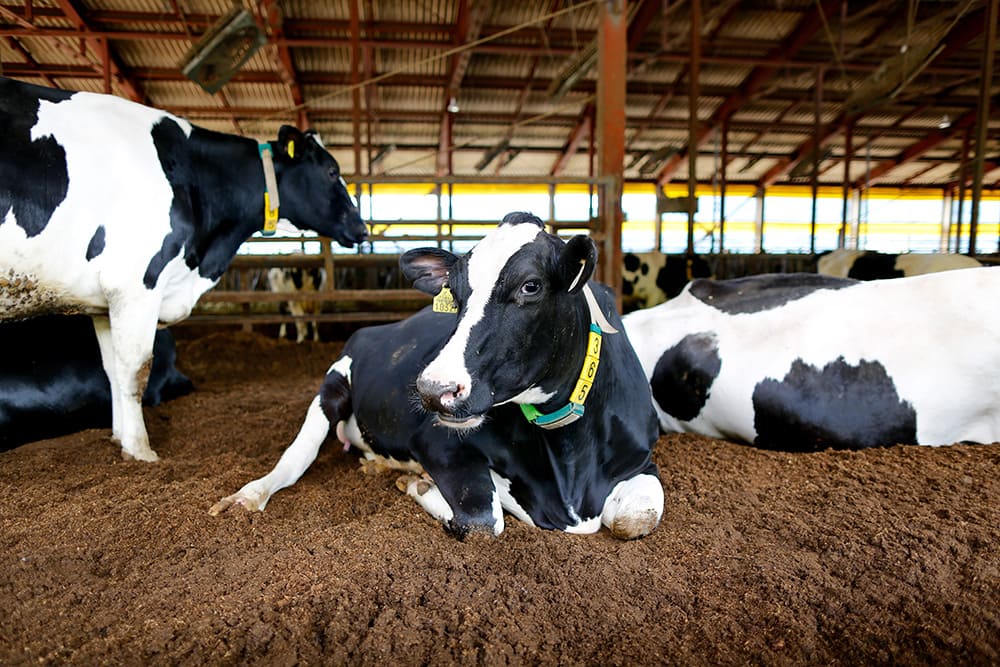
The world has been dealing with issues of various kinds of waste, from toxic waste to food loss and marine plastic waste. Some are recyclable and others simply need to be reduced to relieve the environmental burden. Livestock manure is one kind that can be useful. Making the use of livestock waste in agriculture more practical is a probiotic product called Biobalance.
People may think that livestock manure is already fully used as fertilizer and that it can be stored anywhere until spread on fields, but it is not that easy. According to Yoshio Naito, representative director and CEO of Biobalance Inc., the number of livestock farms has decreased drastically in Japan in the last three decades, while the number of animals on them has not changed much. “It means that farms are more dispersed, making each one more crowded. It makes it harder to keep livestock waste, because there is just too much of it. It is also more difficult to distribute manure to fields because the amount of manure is too much to consume in the neighboring farms,” Naito said in an online talk session held by the Japan Times Satoyama Consortium on Dec. 14.
The Japan Times Satoyama Consortium takes its name from the term satoyama, rural environments that have been preserved by using and circulating resources sustainably.
Livestock waste problems
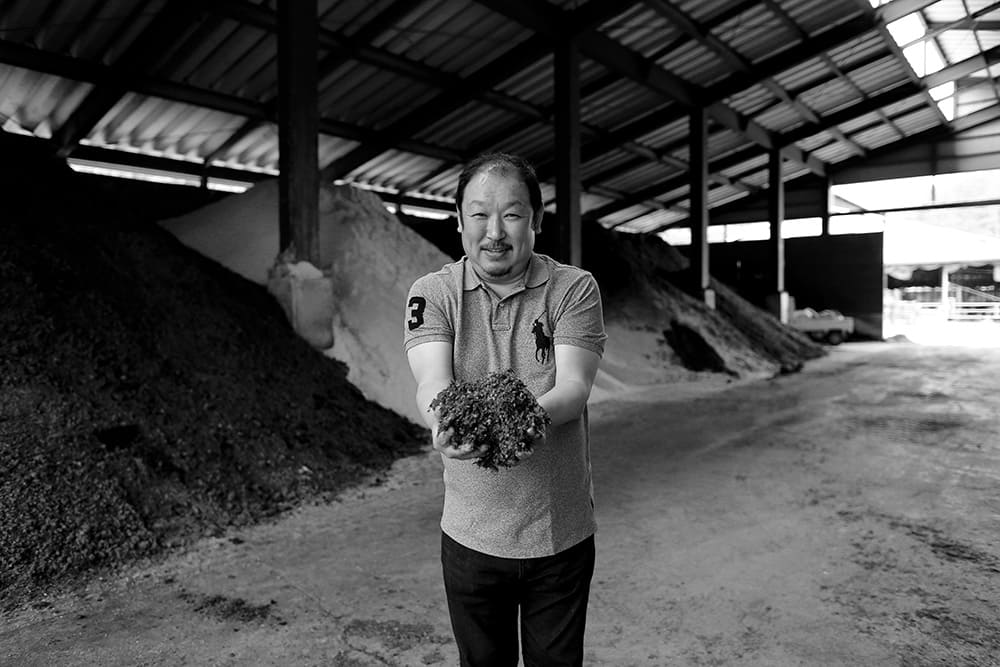
Naito pointed out that livestock waste amounts to four times more than food waste. “The excretion amount of a beef cow is 20 kilograms per day, and that of a milking cow is 45 kilograms per day. It will just cause environmental issues unless we create a circulation between livestock farms and vegetable farms,” he said. Yuto Yoshida, the secretariat chief of the consortium and former mayor or Yokosuka, Kanagawa Prefecture, nodded and added that there is no sewage system for livestock waste.
Naito noted that a law enacted in 2004 created more problems than solutions. It prohibited farmers from burying fresh livestock waste or piling it on fields until it has fermented enough to be used as fertilizer. “The law stipulated that livestock waste has to be kept in a building with walls, a roof and a concrete floor, and granted subsidies for building such facility,” he said.
However, Naito explained that livestock waste from animals given conventional feed does not turn into fertilizer just by being stuffed into a closed space. Not only that, it breeds pests and produces noxious odors that leak out from the facilities.
Biobalance’s good bacteria
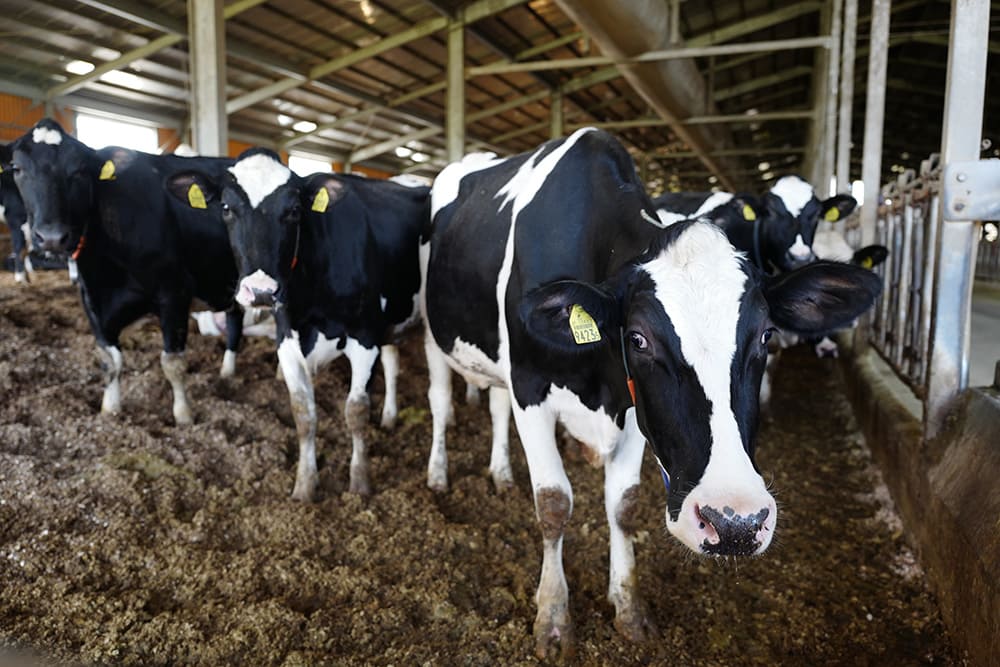
The product Biobalance, which is distributed to more than 250 livestock farms across Japan, solves these problems by improving animals’ intestinal environments. It is a feed containing a strain of a lactic acid bacterium that the company discovered and has patented as Anti-Muffa. This good bacterium has anti-bacterial and anti-fungal effects that prevent the growth of harmful bacteria and molds such as penicillium, Staphylococcus aureus and Escherichia coli while also improving the balance of microbiological flora in the animals’ intestines.
“Microorganisms in the feces of animals fed with Biobalance become active and continue to be so. Therefore, you can leave them piled up for three months, and good manure compost will be ready. And it does not stink at all,” said Naito, showing a handful of cattle manure compost he had brought to the talk session. Yoshida took a sniff at it and said, “It smells only faintly like leaf mulch. I wouldn’t believe that this is made of cattle feces if I hadn’t known.” Naito replied, “Indeed, most farmers do not believe that this is manure compost at first. So we needed to start from proving that there is no odor, not a single fly, in the cowsheds where cows are fed Biobalance.”
Naito and his team spent days at cattle farms to experiment and ensure that Biobalance does its job regardless of the cowshed type, farm location or season, contributes to the health of cattle and helps produce high-quality livestock products. However, this was not an easy undertaking. Naito, who had spent years abroad, had to start by building connections with farms in Japan.
Inspiration from glass of wine
“I went to China to study using the money I saved (from) working day and night for a while after I finished high school in Japan because I had no idea what I wanted to do in the future and I wanted to see the world before I decided anything,” he said. However, while he was studying in China, the 1989 Tiananmen Square protests occurred, forcing him to leave the country. He was at a loss again as to what to do and where to go when an Italian friend of his who also had been studying in China offered him a glass of red wine to console him. “The wine tasted mesmerizing,” he recalled. That was when he made up his mind about where to go to next.
“I asked the Italian friend, whose family was running a wine transport business, to help me settle in Italy and study about wine. At first I was studying to become a sommelier, but my interest shifted from wine itself to grapes and the soil that makes good grapes,” Naito said.
He studied about various things, including microorganisms in soil that support the organic production of grapes, but he had not forgotten about his hometown in Japan. “Sometimes you feel closer to your hometown when you are away. In Aichi Prefecture, where I am from, there are many livestock farms, and I learned that the pollution from the livestock industry was becoming a serious problem, which made me want to do something before it was too late,” he said, explaining how he came back to Japan and started researching lactic acid bacteria, one of the families of effective microorganisms.
Raising healthy livestock using the power of microorganisms produces not only high-quality livestock products but also good manure compost to grow good vegetables, creating a system that generates no waste. “Eating should be an enriching experience of feeling the efforts of the producers, seasons, history, appreciation for ancestors and animals, rather than an act of harming the environment,” Naito said.
